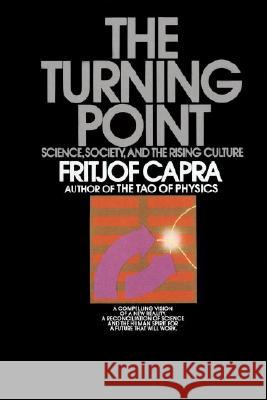The Turning Point: Science, Society, and the Rising Culture » książka
The Turning Point: Science, Society, and the Rising Culture
ISBN-13: 9780553345728 / Angielski / Miękka / 1984 / 464 str.
While physicists were busy revolutionizing our outlook on the fundamentals of the universe, the mechanistic paradigm of the past had already taken hold on the methods of every other field. Our biologists had taken a mechanistic view of life. From a biology textbook quoted by Capra, "One of the acid tests of understanding an object is the ability to put it together from its component parts. " (Capra p. 102) An approach that ironically is quite opposed to the study of life. We've now realized that the mapping of the human genome has yielded many beautiful computer models but little else. The biomedical model which concentrates on the mechanisms of smaller and smaller fragments of the body has yielded an approach that views disease as, "the malfunctioning of biological organisms which are studied from the point of view of cellular and molecular biology; the doctor's role is to intervene, either physically or chemically, to correct the malfunctioning of a specific mechanism." (p.123) The ingestion of many chemicals and execution of complicated surgeries has resulted in ever rising health care costs, and while saving many lives has primarily served as an excuse for lifestyles that run counter to human nature. "We prefer to talk about our children's hyperactivity or learning disability rather than examine the inadequacy of our schools; we prefer to be told that we suffer from hypertension rather than change our over-competitive business world; we accept ever increasing rates of cancer rather than investigate how the chemical industry poisons our food to increase its profits." (p.163)











